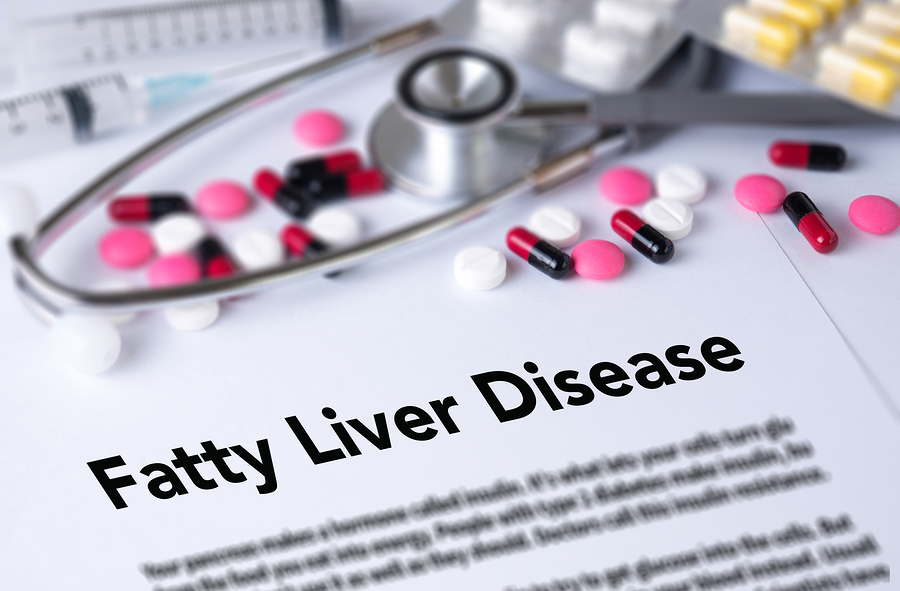 You can’t live without your liver. The liver sits below your rib cage to the right of your abdomen and has the critical job of ridding the human body of toxic substances.
You can’t live without your liver. The liver sits below your rib cage to the right of your abdomen and has the critical job of ridding the human body of toxic substances.
Liver disease can be genetic. It can also be caused by viral infections caused by Hepatitis A, B and C, and by overuse of pain killers like acetaminophen. Most people associate liver disease with alcoholism, which causes scarring and cirrhosis of the liver.
Fortunately, the liver is one of the few organs in the body that can replace damaged tissue with new cells instead of just scar tissue. Of course, if the liver continues to be overwhelmed by toxic substances, like alcohol and fast food, it won’t be able to repair itself.
But there’s another form of liver disease that’s reaching epidemic proportions in our country. It’s called nonalcoholic fatty liver disease (NAFLD), which involves the buildup of fat in the liver. There are two types of NAFLD conditions – simple fatty liver, also called nonalcoholic fatty liver (NAFL), and nonalcoholic steatohepatitis (NASH).
Simple fatty liver is exactly what the name implies. There’s fat in the liver but little or no inflammation or cell damage. Simple fatty liver typically doesn’t lead to liver damage or complications.
On the other hand, NASH does involve inflammation and cell damage on the top of the fat in the liver. This can lead to scarring, cirrhosis or liver cancer. Researchers are still trying to figure out why some people with NAFLD have simple fatty liver and others have NASH.
According to the Mayo Clinic, 30-40 percent of American adults have NAFLD. About 20 percent of those adults have NASH. Tragically, researchers estimate that nearly 10 percent of children ages 2 to 19 have a form of NAFLD. Now referred to by many experts as the silent liver disease epidemic, NASH is expected to surpass hepatitis C as the leading cause of liver transplants in our country by 2020.
This is happening for two reasons. Better treatments for hepatitis C have emerged, and cases of obesity and type 2 diabetes, two key risk factors for NASH, continue to increase at an alarming rate. Insulin resistance, metabolic syndrome, and abnormal fat levels in the blood are also common in people with NAFLD, either simple fatty liver or NASH. Rapid weight loss, improper storage of fat in the body, and a number of prescription medications also contribute to NAFLD.
So why is NASH called silent if it’s becoming such a problem? The damage brought on by NASH, like high blood pressure, is a silent process that takes years or even decades to develop. But unlike NASH, high blood pressure is easy to diagnose with a simple test during a routine checkup.
NASH is diagnosed through your medical history, a physical exam, blood and imaging tests, and possibly a liver biopsy. Unfortunately, this is the kind of comprehensive evaluation that’s rare in conventional medicine.
Of course, big pharmaceutical companies are working feverishly to create drugs for the treatment of NASH to satisfy demand for a pill for every ill. However, clinical trial data has shown mixed results at best and no drugs have been approved.
Like most chronic illnesses, fatty liver disease and NASH are largely self-induced. That means they can be prevented and often reversed through lifestyle change.
As I indicated in a recent blog post, there’s a familiar silver lining in the treatment of chronic illness, and this silent liver disease is no exception. Clinical nutrition counseling. A non-inflammatory diet. More fruits and vegetables. Less sugar and manmade substances. A customized exercise program. Weight loss that’s the by-product of a wellness lifestyle, not a crash diet, which can make NASH worse.
While it’s important to be aware of NAFLD, particularly NASH, it shouldn’t send you into a panic. But it does underscore the need to prioritize disease prevention and addressing the warning signs before they become a serious issue, not after. Make smart decisions every day, and seek the care of a doctor who practices functional medicine.